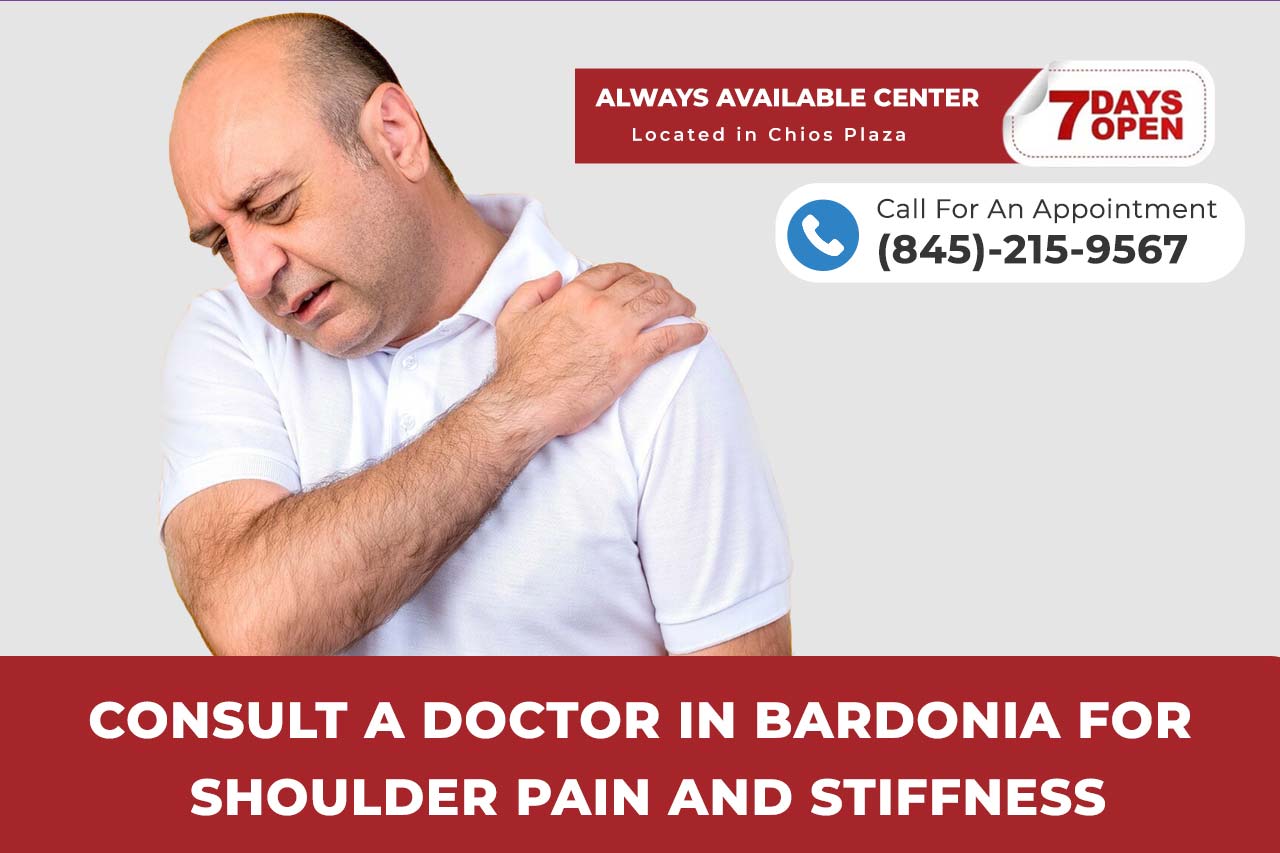Have you ever wondered about persistent shoulder pain and stiffness? You might be dealing with a condition known as ‘frozen shoulder,’ which can significantly impact your daily life and comfort.
We’ll explore what frozen shoulder is, what causes it, how to sleep with it, and effective treatments. We’ll also discuss how neck stretches can aid in relieving the discomfort associated with frozen shoulder by enhancing the neurological output to the shoulder.
What is Frozen Shoulder?
Frozen shoulder, medically referred to as adhesive capsulitis, is characterized by stiffness and pain in the shoulder joint. The condition develops gradually and can severely limit mobility, making everyday tasks challenging. Frozen shoulder typically progresses through three phases:
- Freezing Phase: This phase is marked by gradual shoulder pain and increasing stiffness, limiting movement.
- Frozen Phase: In this phase, pain may diminish, but stiffness persists, making it difficult to use the shoulder.
- Thawing Phase: During this final phase, shoulder mobility slowly begins to improve.
What Causes Frozen Shoulder?
Understanding the causes of frozen shoulder can empower you on your journey to relief. Here are some common contributors:
Inflammation and Immobility
The initial inflammation of a shoulder joint can lead to the formation of adhesions or scar tissue. If the shoulder is immobilized—whether due to injury, surgery, or underlying conditions—it can exacerbate this process. The longer the shoulder remains immobile, the more likely adhesions will form, making recovery more challenging.
Diabetes May Causes Frozen Shoulder
Research suggests a connection between diabetes and frozen shoulder. Individuals with diabetes may be at a higher risk due to the effects of the disease on connective tissues. Therefore, managing diabetes effectively becomes pivotal in addressing the root cause of frozen shoulder.
Age and Gender Influence
Frozen shoulder is more common in individuals aged 40 to 60 and tends to affect women more frequently than men. Hormonal changes during menopause may also play a role in increasing susceptibility.
Post-Injury or Surgery
Shoulder injuries or surgeries that limit movement can lead to the development of adhesions. It’s essential to find a balance between resting the shoulder and ensuring enough movement to promote healing.
Prolonged Immobilization
Extended periods of shoulder immobility—whether due to medical conditions, post-surgery recovery, or lifestyle factors—can contribute to the development of frozen shoulder. Maintaining some level of movement is crucial for preventing stiffness and promoting healing.
How to Sleep with Frozen Shoulder
Sleep can be elusive when dealing with frozen shoulder, as pain and discomfort may disrupt your rest. Here are some tips for improving sleep quality while managing frozen shoulder:
- Use Pillow Support
Prop up pillows to support your affected arm, finding a comfortable position that minimizes pressure on the shoulder. This can help alleviate pain during the night.
- Sleep on Your Good Side
If possible, sleep on the side opposite your affected shoulder to reduce strain. This position can help prevent discomfort and allow for better rest.
- Hug a Body Pillow
Embracing a body pillow can help maintain a neutral shoulder position during sleep, providing additional support and comfort.
- Adjust Your Bedding
Choose a softer mattress and consider adjusting your bedding to create a sleep setup that minimizes discomfort. A supportive mattress can alleviate pressure on the shoulder joint.
How to Treat Frozen Shoulder
Addressing frozen shoulder typically involves a combination of treatments. Here are some effective options:
Physical Therapy
Engaging in targeted exercises guided by experienced physical therapists can significantly improve shoulder mobility and reduce stiffness. A therapist can design a personalized exercise program that fits your specific needs.
Medications
Anti-inflammatory medications and pain relievers prescribed by your physician may help manage discomfort. These medications can reduce inflammation and alleviate pain, making it easier to engage in physical therapy.
Heat and Ice Therapy
Alternating between heat and ice applications can alleviate pain and reduce inflammation. Heat can relax muscles, while ice can numb pain and decrease swelling.
Corticosteroid Injections
In some cases, injecting corticosteroids directly into the shoulder joint may provide relief. These injections can help reduce inflammation and pain in the affected area.
Joint Distension
This procedure involves injecting sterile water into the joint capsule to stretch it and enhance mobility. Joint distension can help alleviate stiffness and improve range of motion.
Manipulation Under Anesthesia (MUA)
During this controlled procedure, your physician will manipulate the arm to break up scar tissue. MUA can be an effective treatment option for patients with severe symptoms.
The Role of Neck Stretches
In addition to these treatments, neck stretches can play a crucial role in managing frozen shoulder. Stretching the neck helps improve the neurological output to the shoulder since the nerves supplying the shoulder originate in the neck. By enhancing blood flow and reducing tension in the neck, you may experience improved shoulder mobility and reduced pain.
Simple Neck Stretches
- Neck Tilts: Gently tilt your head towards one shoulder, hold for 15-30 seconds, and switch sides.
- Neck Rotations: Slowly rotate your head to look over each shoulder, holding for a few seconds on each side.
- Chin Tucks: Pull your chin back towards your neck, holding for a few seconds to help strengthen the neck muscles.
Incorporating these stretches into your routine can provide additional relief and support your shoulder recovery.
From understanding the causes of frozen shoulder to exploring sleep strategies and effective treatments, we’re committed to your well-being.
At Always Available Medical, your journey to relief starts with personalized care. Together, we will develop a plan to help you feel comfortable and get back to the activities you enjoy.
We can also recommend follow-up care with an orthopedic specialist. If you’re in Bardonia and struggling with frozen shoulder, don’t let it hold you back any longer—reach out today for the support you need!
We are open 7 days a week, ready to provide comprehensive care and support.Call us: 845-215-9567

